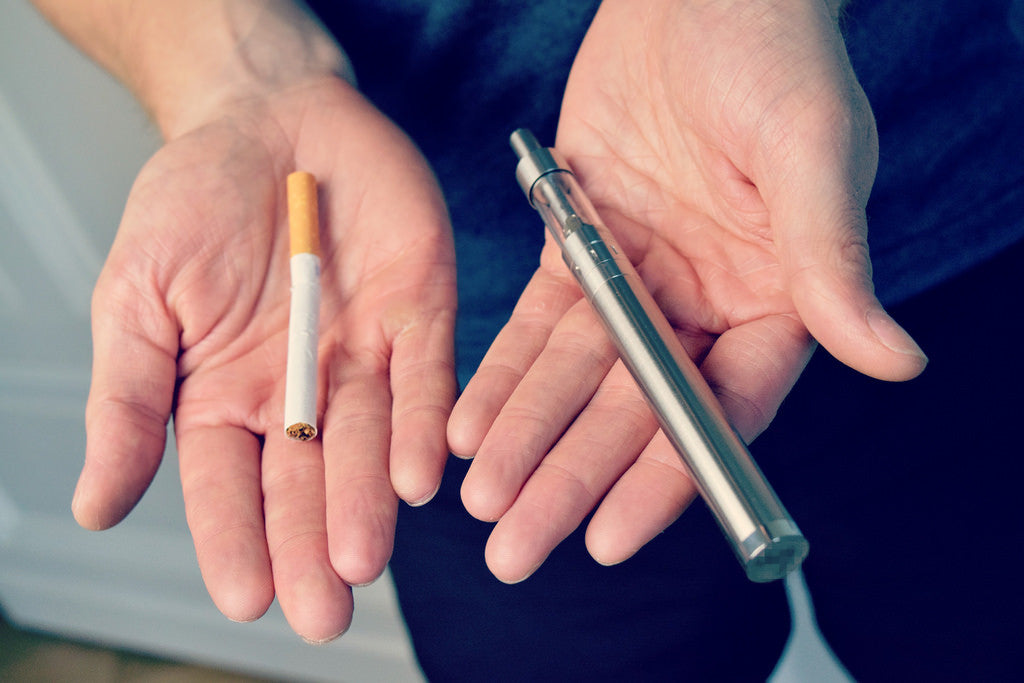Dr. Derek Yach may be one of the most active anti-smoking advocates on the planet. He is a former professor of global health at Yale. In addition, he developed the World Health Organization’s Framework Convention on Tobacco Control a model that is now in effect in almost 180 countries.
Dr. Derek Yach may be one of the most active anti-smoking advocates on the planet. He is a former professor of global health at Yale. In addition, he developed the World Health Organization’s Framework Convention on Tobacco Control a model that is now in effect in almost 180 countries. He is well known for the attention he has drawn to the unethical practices of the tobacco industry and acted in the best interest of the health of our global society. That is why his statements are so worthy to listen to.
Dr. Yach has broken away from the majority of his former colleagues, supporting e-cigarettes and giving them the rightful credit they deserve among anti-smoking advocates, who almost always oppose e-cigarettes just because of their close relation to the traditional model. Or maybe there’s more to it than that.
Dr. Yach expressed his views in the most recent issue of Spectator Health, in his article, “E-Cigarettes Save Lives,” where he not only supports e-cigarettes, but also sheds light on the powers that be behind the World Health Organization (WHO), and many anti-smoking advocacy groups that oppose e-cigarettes.
He believes that the WHO and their ‘intransigence’ threatens the lives of millions. Dr Yach states that if things do not change a billion people will die from smoking-related diseases by the year 2100. If that does happens, he believes the WHO will have to bear some of the responsibility.
Dr. Yach believes much of the issues is with the new e-cigarette laws and policies that are now being formed, without concern for the research and information that is really out there. “Unsupported statements are accepted as truth by policymakers and are used as the basis for stringent regulation of e-cigs in many jurisdictions,” he states. This kind of thinking is dangerous; we cannot allow our laws and policies to be based on fiction.
Dr Yach accuses the WHO of allowing anti-vaping lobbyists to control their position on e-cigarettes and illustrates the reasoning behind the negativity surrounding e-cigarettes:
“One reason is that governments have become addicted to tobacco excise tax and may fear that, as e-cigs take off, they will lose a valuable source of revenue. Many leading NGOs(non-government organizations) and academics exert strong influence at WHO, within governments, in the media and among the general public. In the past, they helped bring tobacco control out of the shadows and into the mainstream of health policy. Now, alas, their intransigence threatens more profound progress.”
Many people, countries, states, and organizations look to the WHO for guidance regarding policy, and misinformation fueled by hidden agendas is beginning to trickle down into people’s everyday lives though policies, bans and restrictions.
It’s important to note that Dr Yach is not an e-cigarette advocate. During his career working with anti-smoking efforts he has admittedly grown to distrust the information that comes from every producer of nicotine products. “I understand why anti-smoking activists so distrust vaping. I’m one of them. But the evidence is clear,” he states. His support for electronic cigarettes comes from the truth and the facts. E-cigarettes help people quit smoking more effectively than other remedies. That is why he believes that it is not only unfortunately, but also a danger to our global health that the WHO continues to treat vaping as if it were just as bad a smoking.
Derek Yach is not alone in his view. He quotes the Royal College of Physicians in his article who state that: ‘Switching completely from tobacco to e-cigarettes achieves much the same in health terms as does quitting smoking and all nicotine use completely. Furthermore… risks associated with passive exposure to e-cigarette vapor are far less than those associated with passive exposure to tobacco smoke.”
Second hand smoke is one of the biggest dangers to our public health that we have the power to remedy. Dr. Neal Benowitz is an MD and a former member of the FDA’s Tobacco Products Scientific Advisory Committee. While he questions the safety of some e-cigarette ingredients, mainly the variation of ingredients used to create the flavoring, he is still candid about the reality of the e-cigarette debate. “It’s all relative to cigarette smoking,” Benowitz says. “Based on what we know now, they [e-cigarettes] are much less hazardous than regular cigarettes.”
One area where e-cigarettes are much better than the traditional model is in second hand smoke. Benowitz points out that e-cigarette users exhale very little of what they breathe in, not to mention the fact that e-cigarette devices emit no aerosol. Cigarettes, by contrast, pollute the atmosphere and others’ lungs at an astronomical rate. “Seventy-five percent of the smoke generated by cigarettes is sidestream smoke, and that goes into the environment,” Benowitz says.
These are not huge revelations to e-cigarette users who have already made the decision to switch from smokes to e-cigs. Vapers experience the benefits daily. Not only are users improving what they inhale into their body by switching out smoke for vapor, they also enjoy more social acceptability, not to mention just the simple fact that the smell that usually shrouds a cigarette smoker is non-existent. The truth is, if all e-cigarettes did was cut down on second hand smoke that would be enough. In reality though, e-cigarettes also offer a much less dangerous way to handle a nicotine habit.
